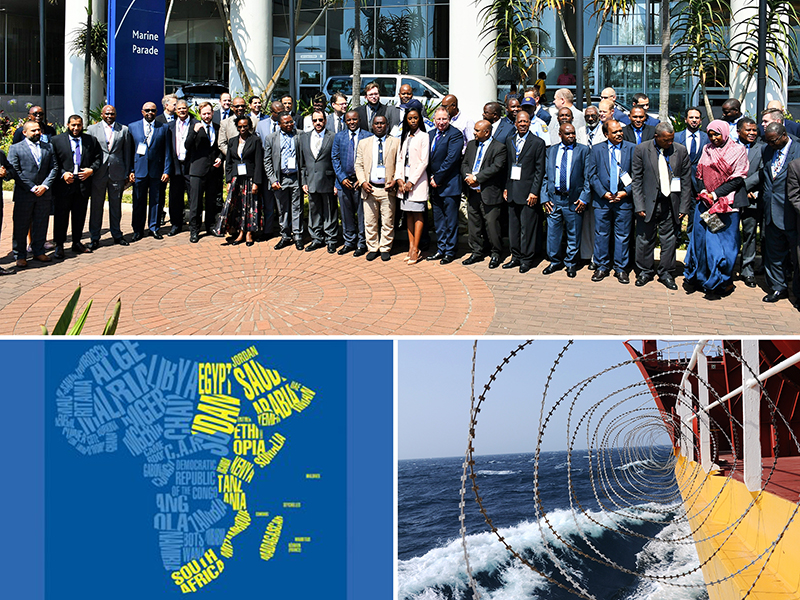Maritime domain awareness is the effective understanding of anything associated with the maritime domain that could impact security, safety, the economy or the marine environment. A regional workshop on capacity building aimed at enhanced Maritime Domain Awareness in the Djibouti Code of Conduct (DCoC) signatory States, took place in Durban, South Africa (12-14 November).
Recommendations on how to improve maritime security in the West Indian Ocean and the Gulf of Aden were agreed, with a focus on good maritime security as an enabler for maritime development, thereby contributing to meeting the UN Sustainable Development Goals (SDGs).
The meeting agreed a roadmap for the enhancement of regional Maritime Domain Awareness to address "sea blindness"; and a roadmap for to enhance the DCoC information sharing network through the establishment of National Information Sharing Centres in each of the 20 participating States. The National Information Sharing Centres are expected to enhance inter agency cooperation and whole of Government approach at national level to meet the objectives of the Jeddah Amendments. Workshop participants also agreed to ensure uniform implementation of critical measures at national level to ensure that no State was left behind.
The Djibouti Code of Conduct has been instrumental in repressing piracy and armed robbery against ships in the western Indian Ocean and the Gulf of Aden. The 2017 Jeddah Amendment expands its scope significantly broadened to cover other illicit maritime activities, including human trafficking and illegal, unreported and unregulated (IUU) fishing.
The three-day regional workshop, organised by IMO with support from the Governments of the United Kingdom and the Republic of South Africa, brought together 65 officials representing DCoC National Focal Points and senior Government Officials, including maritime security stakeholders from the wider international community. The workshop built on the recommendations of the High-Level meeting of DCoC States held in Jeddah, Saudi Arabia (7-9 May) and a follow-up meeting held at IMO Headquarters in London (21 June).
Participating Member States represented at the workshop were; Comoros, Djibouti, Ethiopia, France, Jordan, Kenya, Madagascar, Maldives, Mauritius, Mozambique, Oman, Saudi Arabia, Seychelles, Somalia, South Africa, Sudan United Arab Emirates, United Republic of Tanzania and Yemen. Also represented were: United Kingdom, United States of America, European Union (EU), Indian Ocean Commission, International Criminal Police Organization - INTERPOL, East African Standby Force, One Earth Future Foundation, Copenhagen University, and Institute for Security Studies.
